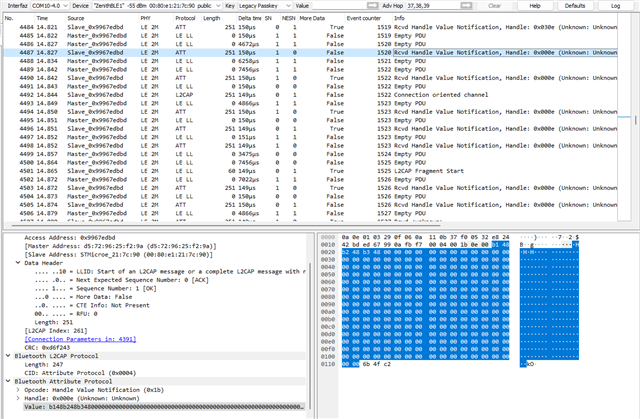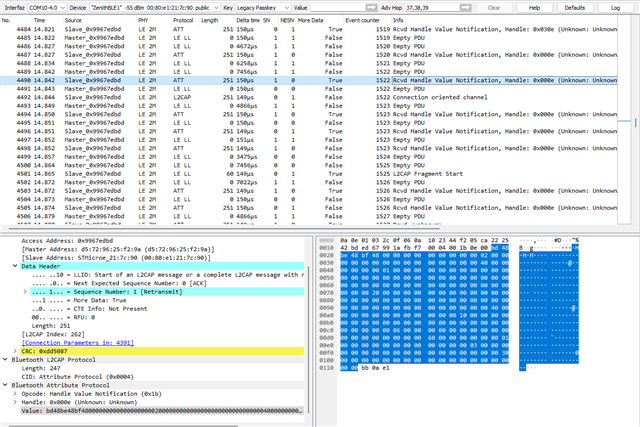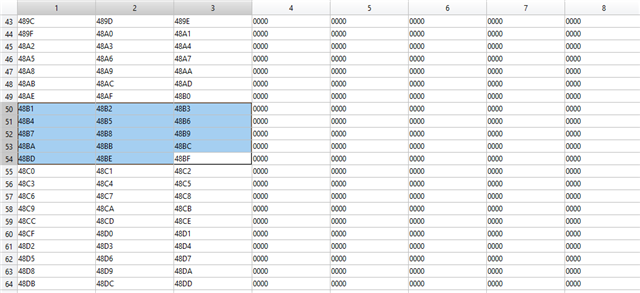Hello! My link configuration is:
TX: STM32WB15CC notify at high rate: one 251B frame per 3ms
RX: BLE sniffer dongle nRF52840
I'm having trouble to detect lost packets in my connection. On one hand, I am using one sniffer to get the notification of the packets by the provided log file in the nRF Connect BLE app. This way, if the transmission is successful, I get no errors and 0 packets lost. On the other hand, if I sniff the connection through another sniffer with Wireshark connected to the same PC or other PC, I get different packets received, as there are way more errors and retransmissions that occasionally end in lost packets.
However, the packets that seem apparently lost in Wireshark are actually received in nRF Connect, so the sniffer in Wireshark seems not to be working well. Why is this? What can I really trust about the frames in Wireshark?





